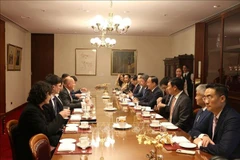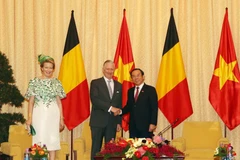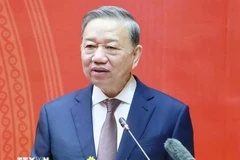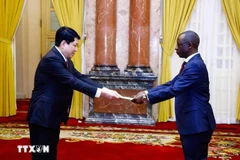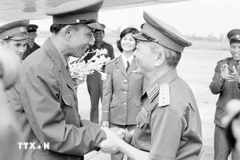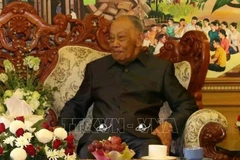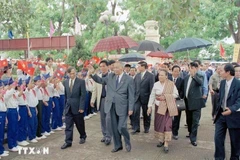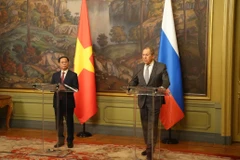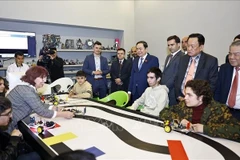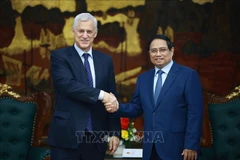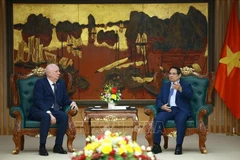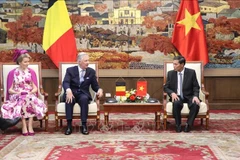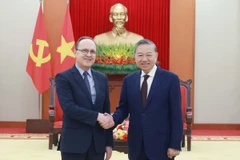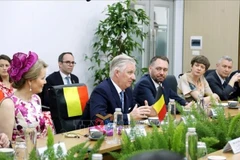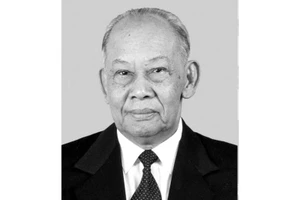During the 26th ASEAN Summit’splenary session, they focused discussions on the advent of the ASEANCommunity, the post-2015 ASEAN Community Vision, and the ASEAN’sexternal relations and future orientations.
NajibRazak said the ASEAN Community is to come into being amid the positiveregional developments and driven by buoyant economic growth, favourabledemographics, increased regional integration and the regional network offree trade agreements, adding that the ‘people-centredness’ mustcontinue to be ASEAN’s central ethos in the years to come.
Hailing ASEAN Secretary General Le Luong Minh’s report on the progressof the Agenda for the ASEAN Community, participants recognised thecentral role of the bloc - a pillar of the evolving regionalarchitecture.
However, he also mentioneddifferences of opinion on a proposed common time zone in the region,saying that this will be up for agenda in the next ASEAN Summit.
Regarding the East Sea issue, the Malaysian PM underscored thesignificance of the peaceful settlement of disputes in line withinternational law, especially the 1982 United Nations Convention on theLaw of the Sea.
As part of the Summit, the ASEANleaders also attended meetings of the ASEAN Inter-Parliamentary Council,the ASEAN Business Advisory Council, and representatives of the ASEANyouth and social-civil organisations.
The April26-27 ASEAN Summit convened its opening ceremony and plenary session inKuala Lumpur while the retreat session and closing ceremony took placeon Langkawi island, Kedah state.
Malaysia is the2015 Chair of the ASEAN, or the Association of Southeast Asian Nations,founded in August 1967 and consisting of Brunei, Cambodia, Indonesia,Laos, Malaysia, Myanmar, the Philippines, Singapore, Thailand, andVietnam.-VNA

